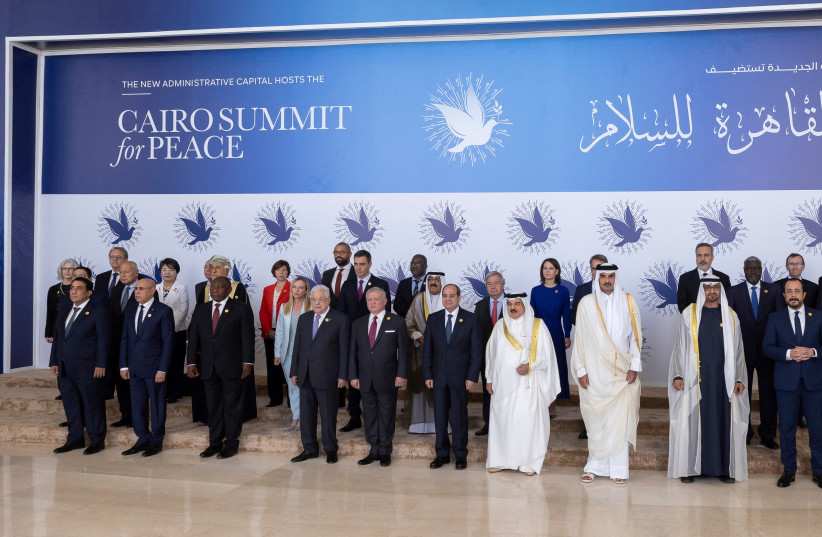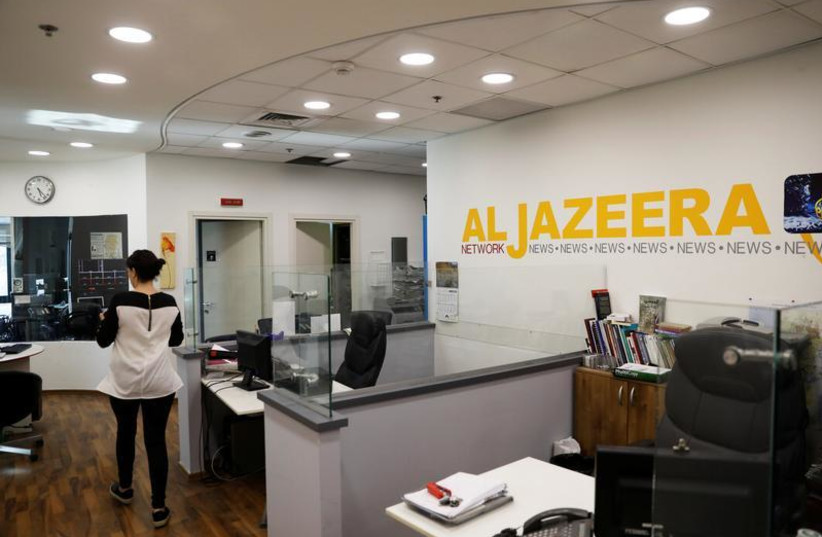“Enough is enough,” the emir of Qatar, Sheikh Tamim bin Hamad Al Thani, said on Tuesday of the situation in Gaza. “It is untenable for Israel to be given an unconditional green light and free license to kill,” he said.
Al Thani’s first words are correct, enough is enough.
But what is enough is not Israel’s campaign to destroy Hamas’s military capabilities, but rather that Qatar – a state that provides diplomatic, media, and financial support to a barbaric terrorist organization that murders and mutilates men, rapes and kidnaps women, and burns to death entire families – is accepted unblinkingly in the family of civilized nations.
It’s as if a person who knowingly and publicly hosts in his home the leaders of a crime family that had just murdered and mutilated entire families would still be a welcome dinner guest.
For years, Al Thani and members of his royal family must have sat in their palaces and said to themselves: What a wonderful world. On the one hand, they could spend hundreds of millions of dollars bankrolling a bloodthirsty terrorist organization, and on the other hand, bankroll prestigious think tanks like the Brookings Institute and Atlantic Council.

Bankrolling terrorism
On the one hand, they could put up Hamas arch-terrorists Ismail Haniyeh and Khaled Mashaal in five-star Doha hotels, and on the other hand, they could host the World Cup in 2022.
Much of the world was revolted after the October 7 massacres, when footage was shown of Haniyeh and his henchmen watching the events unfold on television and celebrating in his Doha office the slaughter of men, women, and children.
For years, the Qataris perfected the art of appearing civilized, modern, and forward-looking through strategic investments in think tanks, universities, sports teams, and public relations firms while backing the most vile, vicious, antisemitic terrorist organization on the planet.
The question is, for how long? What will it take for the West to ostracize Qatar for its support – moral, in the media through Al Jazeera, and materially – of jihadi terrorism.
Make no mistake, Israel is also guilty in this whitewashing of Qatar, allowing it to pump millions of dollars of cash into Gaza to “buy” quiet and using it as a go-between to send messages over the years to Hamas.
But no more, that charade is over.
At least it should be for Israel, said Michael Milstein, a former adviser on Palestinian affairs to the Coordinator of Government Activity in the Territories, in a KAN Bet interview on Tuesday. He said Qatar placed itself in the role of a mediator “even though it completely identifies with Hamas and is doing us tremendous media and diplomatic damage through Al Jazeera.”

And the Qataris are doing it again, acting as a go-between to secure the release of some hostages. Milstein said the exploitation of the hostages by Hamas is directed from Qatar.
“We need to remember this after the war, if we want to create a different reality. Qatar must not be allowed to play a part; it must be pushed away from Gaza and the Palestinian field. Its actions have been negative.”
Milstein said Qatar understands how the October 7 massacres have stained it and is attempting to rehabilitate its image, partly by being involved in releasing some of the kidnapped hostages.
Their efforts at rehabilitation are obviously helped by the fact that Qatar is the world’s largest exporter of liquefied natural gas, critical in the world’s energy market after Russia stopped natural gas exports to Europe.
But not everyone is ignoring Qatar’s relationship with Hamas. Assaf Uni wrote in Globes that when Al Thani visited Germany last week, there was criticism in the press, with a Der Spiegel headline reading: “Terror supporter comes to lunch.”
In addition to Qatar’s importance to the world energy market, another reason for Western and US reluctance to treat it as a pariah is that it also hosts a large US airbase, one of the reasons Washington was opposed to the boycott of Qatar by Saudi Arabia, the UAE, Bahrain, and Egypt, which began in 2017.
Last year, the Biden administration designated Qatar a major non-NATO country, giving it the same classification that Israel enjoys.
But some voices are being raised to reassess Western ties with Qatar. Mark Wallace, a former US ambassador to the UN, was quoted in The Telegraph as calling for assets linked to the Qatari state and royal family to be frozen “until the Qataris turn over the worst of the worst terror leaders in the world.”
According to Wallace, “The Qataris should be ostracized and their role should forever change in the world, given what happened.”
But, as Wallace well knows, there is a big difference between what should happen and what will happen, and the likelihood of the West treating Qatar as a pariah is slim – though some perceptions of the oil-rich kingdom are undoubtedly changing.
